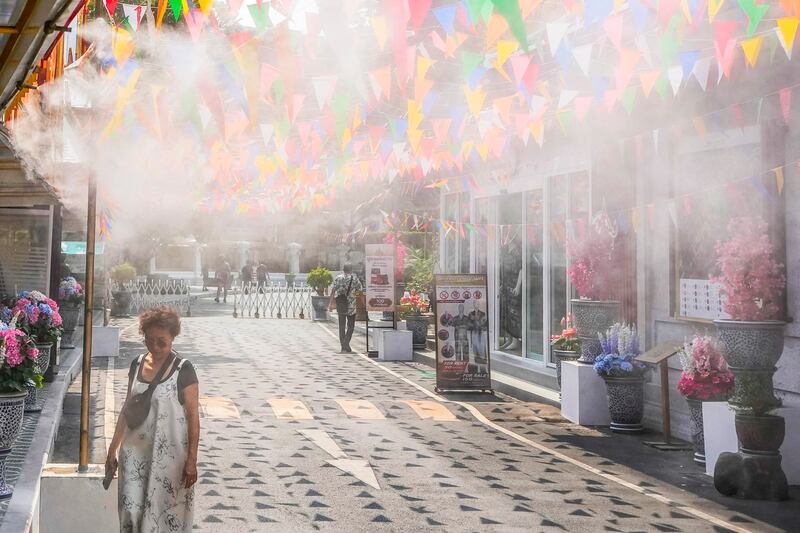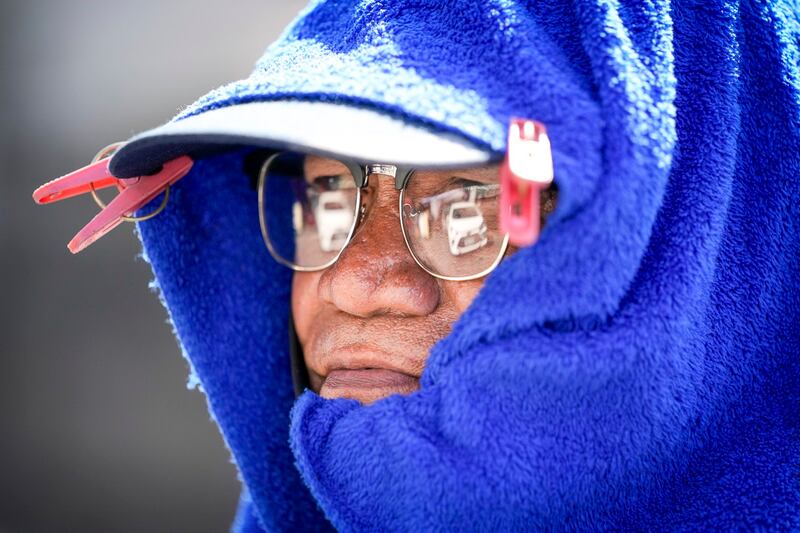Record hot weather is baking Southeast Asia, with three or four mostly elderly people dying of heat stroke daily in central Myanmar and schools in Cambodia reducing classroom hours to keep students from being overexposed to heat in the afternoons.
Temperatures in Phnom Penh, Cambodia's capital, soared to a record 43 degrees Celsius (109 F) on Tuesday. The country is experiencing its hottest weather in 170 years, Ministry of Water Resources and Meteorology spokesperson Chan Yutha told The Associated Press on Monday.
There have been no heat-related deaths in the capital, Phnom Penh's Health Department told the Khmer Times.
But in Myanmar’s Chauk township in Magway – historically the country’s hottest region – about 150 people have died in the past six weeks due to the heat-related health problems, a Myanmar Rescue Society official told Radio Free Asia. RFA could not independently confirm this number.
“More elderly persons aged over 75 or 80 have died from the high temperatures, with about four, including three elderly persons, dying each day,” said an official of the Myanmar Rescue Society based in Chauk.

In the Mandalay region’s Chan Aye Thar Zan township, 36-year-old Mann Moon Maung died from a heatstroke on April 27, even though he was rushed to a nearby health clinic, his father told Radio Free Asia.
“The death of my son happened very fast. I thought it was less than 15 minutes. I immediately called a car and went to the hospital. He was taken to a nearby 24-hour clinic,” said his father, who asked not to be identified. “The doctor said he had already died. There was no heartbeat and no blood pressure.”
Record temperatures enveloped seven townships in Magway, Mandalay, Sagaing and Bago regions on Monday, according to Myanmar’s meteorological department. Last week, several towns in Myanmar were among the hottest spots worldwide, the AP reported.
Reduced hours
In Cambodia, some schools that don’t have air conditioning have sprayed water inside the classrooms to lower the indoor temperatures.
The Ministry of Education, Youth and Sports said in a notice to school administrators on Wednesday that classes should start at 7 a.m. and continue until 10 a.m., with a break until 2 p.m.
Classes can begin again at 2 p.m. and continue until 5 p.m., the ministry said. Also, teachers must give students 15 minute breaks while students are urged to bring clean water from home.
Ouk Chhayavy, president of the Cambodian Independent Teachers Association union, told RFA that she supported the ministry’s recommendations.

“Some classes have about 60 students and they don’t have fans and their schools’ roofs are metal,” she said.
Schools in Laos have also been urged to suspend classes, if necessary, for the sake of students’ health, according to a Lao Ministry of Education and Sports advisory issued last week.
The ministry has told school officials to send students home if temperatures rise over 40 degrees Celsius, an official with Vientiane’s Education and Sports Department told RFA on condition of anonymity for safety reasons.
Many schools in remote areas don’t have fans or air conditioning, and classrooms that have corrugated roofing can get even hotter than outside, he said.
“It’s too hot, unbearably hot even for adults,” a student’s mother told RFA. “We turn the fan on, but it only pushes hot air through.”
Translated by Yun Samean, Max Avary and Aung Naing. RFA Lao contributed to this report. Edited by Matt Reed and Malcolm Foster.
